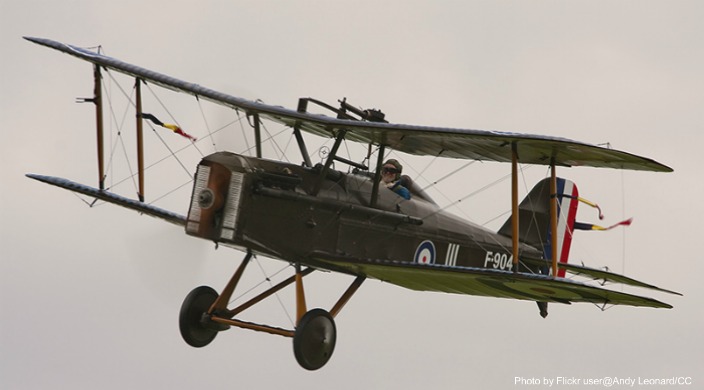
Most Americans know of Orville and Wilbur Wright, the Dayton, OH, brothers who in 1903 became the first to fly. Far fewer know of Arthur Welsh, the first Jewish aviator.
Born Laibel Wellcher in Russia in 1881, the young man who would become Arthur Welsh came to this country with his family in 1890. Settling in Philadelphia, Laibel attended public and Hebrew schools there with his five brothers and sisters.
When Laibel was 13 his father died. Several years later his mother remarried and the new family moved to Washington, D.C. After finishing school, Laibel entered the Navy. There he changed his name to Arthur L. Welsh, thinking his given name sounded too Jewish and could cause him problems while in the service. From then on, he was known as Al Welsh.
In 1905 Welsh was discharged from the Navy and returned to Washington. While attending meetings of the Young Zionist Union, Welsh met his future wife, Anna Harmel. They were married at Adas Israel Synagogue in 1907. Anna came from a prominent family in the Washington Jewish community. Her father was a member of the Adas Israel Board of Managers as well as a founder of the Hebrew Free Loan Association and the Hebrew Relief Society. Her mother was a founder of the Jewish Foster Home in Washington and, in 1919, was a founding member of Hadassah's Washington chapter.
Welsh became a flying enthusiast after hearing of the Wright Brothers' first flight at Kitty Hawk, N.C. He immersed himself in the subject, reading books and intently studying the new field of aviation. In 1909, after traveling to Fort Myer, VA, to see Orville Wright demonstrate the Wright Military Flyer, Welsh wrote to the Wrights asking if he could join them.
The Wrights turned down Welsh's initial request because he lacked experience. Unwilling to give up, Welsh traveled to Dayton to meet the brothers in person. Concerned about his lack of qualifications but impressed with his determination, Orville and Wilbur hired Welsh to be part of their newly formed flying exhibition program. Working directly with Orville Wright, Welsh learned to fly and in the summer of 1910 became an instructor at the Wright's flying school.
In just a few months Welsh advanced from eager novice to leading aviator in this new and dangerous profession. Quickly becoming a very adept pilot, Welsh performed numerous exhibition flights for the Wrights in 1910 and 1911, establishing many speed and altitude records along the way.
In 1911, while directing a flying school in Long Island, N.Y., Welsh took on a student named Henry H. (Hap) Arnold. Arnold would later become a five star general in the U.S. Army as well as commanding general of the Army Air Forces during World War II. In his book Global Mission, Arnold wrote of Welsh, "He had taught me all he knew, or rather, he had taught me all he could teach. He knew much more." In 1930 Arnold wrote to Welsh's sister, Clara,
"The pioneers in the aviation game were the ones who took all the risks and received little in exchange for their daring. Al was one of those pioneers. I admired him very much for the work he was doing, the manner in which he did it, and his personal characteristics."
On June 11, 1912, during an assignment to test a new Wright Brothers military plane design, Welsh and his passenger, Army Lieutenant Leighton W. Hazelhurst, were killed when their plane crashed while attempting a ten-minute flight to carry 450 pounds to a height of 2,000 feet.
Two days later Welsh was buried at Adas Israel's Alabama Street cemetery in Washington, D.C. Orville Wright attended the funeral, only two weeks after the death of his brother, Wilbur, who died of typhoid at the age of 45.
Welsh was survived by his wife and 2-year-old daughter. Though a government inquiry ruled that Welsh, as the pilot, caused the crash, according to one family member, Welsh's wife believed:
"...that the War Department pushed too hard for tests that were sure to fail....Not only was Welsh carrying too much of a load, but he also carried his passenger and was expected to climb too quickly and too high when you consider the weight. Too much was expected."
An often forgotten figure even in American Jewish history, Arthur Welsh was a pioneer, an explorer, and a practicing Jew who, like thousands of other East European Jewish immigrants of his era, came to this country and pursued his dreams of success--all the way to the clouds.
Sources: Much of the information for this article came from two sources: "Arthur Welsh: The First American Jewish Aviator," an online exhibition created by the Jewish Historical Society of Greater Washington and an article by Robert Thum, "The Wright Man," Washington Jewish Week, November 27, 2003.



